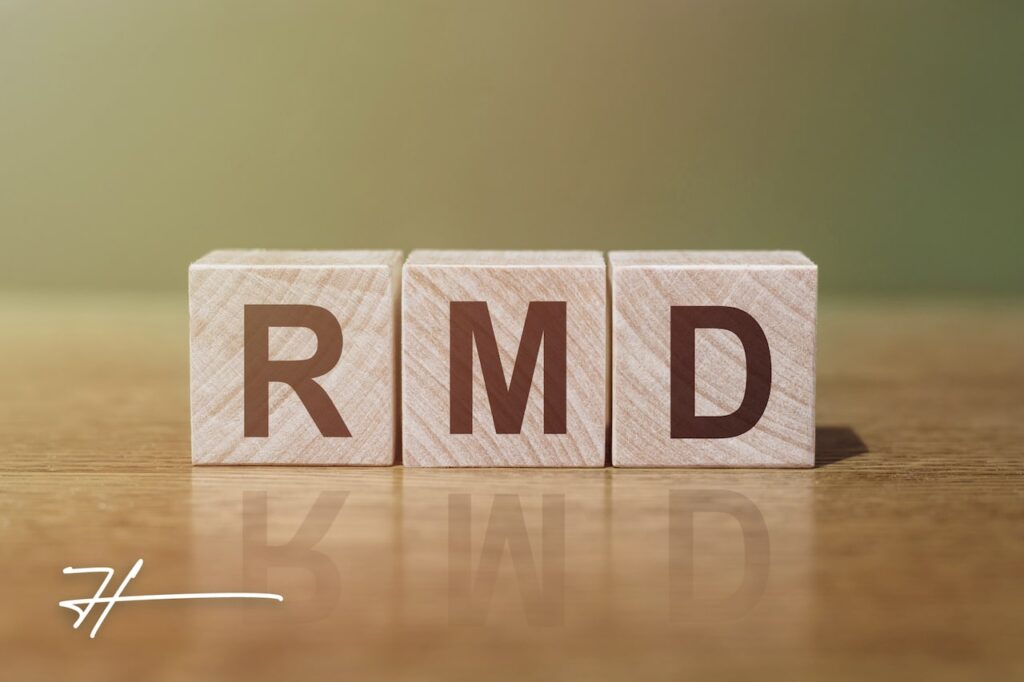Reaching the age of 72 marks an important milestone for retirement account holders—the onset of Required Minimum Distributions (RMDs). While these mandatory withdrawals from retirement accounts are a part of the financial landscape, savvy investors can employ strategies to minimize the tax impacts of RMDs. In this article, we’ll explore the ins and outs of the relationship between RMDs and taxes and discuss strategic approaches to optimize your tax position during retirement.
RMDs and Taxes: Understanding RMD Basics
Let’s begin with an explanation of the basic components of Required Minimum Distributions:
1. What are RMDs?
RMDs are mandatory withdrawals from certain retirement accounts, including Traditional IRAs, 401(k)s, and other qualified retirement plans. The purpose of RMDs is to ensure that individuals draw down their retirement accounts and pay taxes on the distributions.
2. When do RMDs Start?
RMDs typically begin in the year you turn 72 (or 70½ for those who reached 70½ before January 1, 2020). The deadline for the first RMD is April 1 of the year following the year you turn 72. Subsequent RMDs must be taken by December 31 each year.
3. Calculating RMDs:
The RMD amount is determined by dividing the account balance as of December 31 of the previous year by the distribution period based on life expectancy.
RMDs and Taxes: Strategies for Minimizing Tax Impacts
You must take RMDs, so it’s important to identify strategies that may help you minimize your tax liability related to these distributions. Here are a few common tools to consider:
1. Roth Conversions:
You might convert a portion of your Traditional IRA to a Roth IRA before RMDs begin. Roth IRA withdrawals are not subject to RMDs, and the converted amount is taxed in the year of the conversion. Strategic Roth conversions can help manage future tax liabilities and create a tax-free income source in retirement.
2. Charitable Giving:
Some retirees choose to utilize Qualified Charitable Distributions (QCDs) to satisfy part or all of an RMD. QCDs allow you to transfer up to $100,000 annually directly to qualified charities without counting it as taxable income. This strategy can reduce your taxable income and fulfill meaningful charitable intentions at the same time.
3. Delaying RMDs if Still Working:
If you’re still working at age 72 and not a 5% owner of the company, know that you may delay RMDs from your current employer’s retirement plan until you retire. This strategy can postpone taxation on retirement account funds and provide more control over your tax situation.
4. Managing Tax Brackets:
Strategically managing RMDs and taxes to stay within lower tax brackets can optimize overall tax liability. Understanding the progressive nature of the tax system allows for tax-efficient withdrawal planning. Diversifying income sources, including taxable and tax-advantaged accounts, can provide flexibility in managing tax brackets.
5. Estate Planning Considerations:
If leaving a legacy is a priority for you, consider the impact of RMDs on your estate. Strategic planning, including gifting and setting up trusts, can optimize the transfer of wealth to your heirs. Work with an estate planning professional to align RMD strategies with broader estate planning goals.
RMDs and Taxes: Seeking Professional Guidance for the Best Outcomes
Many aspects of the U.S. tax code are confusing, to say the least. Many people have difficulty navigating topics like RMDs and taxes on their own and find consulting an experienced financial advisor helpful. After all, navigating RMDs and implementing tax-efficient strategies requires careful planning – and the strategy you undertake can significantly impact your financial security over time. Consulting with a financial advisor on RMDs and taxes can provide personalized guidance based on your unique circumstances.
A professional can assess your overall financial situation, help you develop a tax-efficient withdrawal plan, and adapt strategies as tax laws evolve. Whether it’s leveraging Roth conversions, optimizing charitable giving, or managing tax brackets, proactive planning with a trusted financial advisor in your corner can make a significant difference in preserving your retirement assets.
At Hamilton Wealth Advisors, we take pride in turning over every stone to help you protect your wealth, and that certainly includes strategic tax planning measures. If you’d like to discuss RMDs and taxes, or any other financial planning topics, please contact us today to schedule a free, no-obligation consultation with a member of our team. At Hamilton, your success is our success, and we look forward to the opportunity to help you optimize your financial position.







